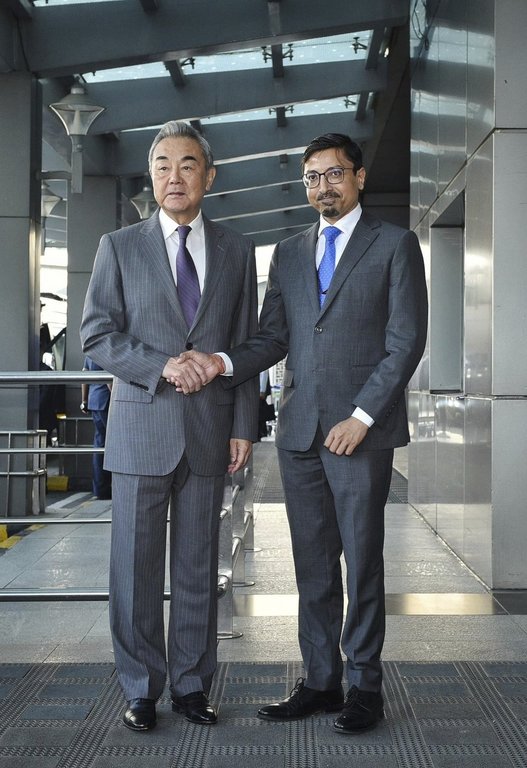Signs of thaw as the Indian and Chinese foreign ministers meet in New Delhi
Advertisement
Read this article for free:
or
Already have an account? Log in here »
To continue reading, please subscribe:
Monthly Digital Subscription
$0 for the first 4 weeks*
- Enjoy unlimited reading on winnipegfreepress.com
- Read the E-Edition, our digital replica newspaper
- Access News Break, our award-winning app
- Play interactive puzzles
*No charge for 4 weeks then price increases to the regular rate of $19.00 plus GST every four weeks. Offer available to new and qualified returning subscribers only. Cancel any time.
Monthly Digital Subscription
$4.75/week*
- Enjoy unlimited reading on winnipegfreepress.com
- Read the E-Edition, our digital replica newspaper
- Access News Break, our award-winning app
- Play interactive puzzles
*Billed as $19 plus GST every four weeks. Cancel any time.
To continue reading, please subscribe:
Add Free Press access to your Brandon Sun subscription for only an additional
$1 for the first 4 weeks*
*Your next subscription payment will increase by $1.00 and you will be charged $16.99 plus GST for four weeks. After four weeks, your payment will increase to $23.99 plus GST every four weeks.
Read unlimited articles for free today:
or
Already have an account? Log in here »
NEW DELHI (AP) — The foreign ministers of India and China met in New Delhi on Monday in a renewed effort by the nuclear-armed Asian rivals to ease tensions after a five-year border standoff significantly hurt relations.
India’s foreign minister, Subrahmanyam Jaishankar, welcomed Wang Yi for talks aimed at stabilizing relations that plunged in 2020 after security forces clashed along the disputed Himalayan border. The violence, the worst in decades, left 20 Indian soldiers and four Chinese soldiers dead, freezing high-level political engagements.
Since then, the two sides have deployed tens of thousands of security forces in border areas. Last year, India and China agreed to a pact on border patrols and withdrew additional forces from some border areas.

Jaishankar in opening remarks Monday called for deescalation of border tensions to give positive momentum to bilateral ties.
“Having seen a difficult period in our relationship, our two nations now seek to move ahead. This requires a candid and constructive approach from both sides,” Jaishankar said.
Wang said there has been peace and tranquility along the borders and China has allowed Indian pilgrims to visit some key places in the Tibet autonomous region.
The Chinese foreign minister is scheduled to meet Indian Prime Minister Narendra Modi on Tuesday and hold talks with Indian National Security Adviser Ajit Doval about the disputed border. Reducing the number of troops there is expected to be on the agenda.
Wang’s India visit coincides with friction between New Delhi and Washington after U.S. President Donald Trump imposed a 50% tariff on Indian goods, which includes a penalty of 25% for purchasing Russian crude oil. The tariffs take effect Aug. 27.

